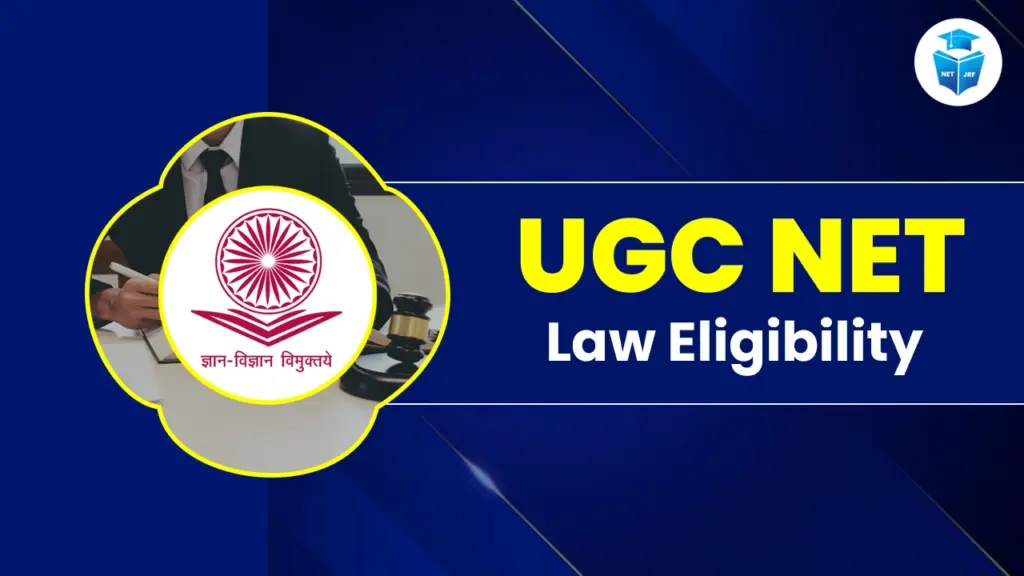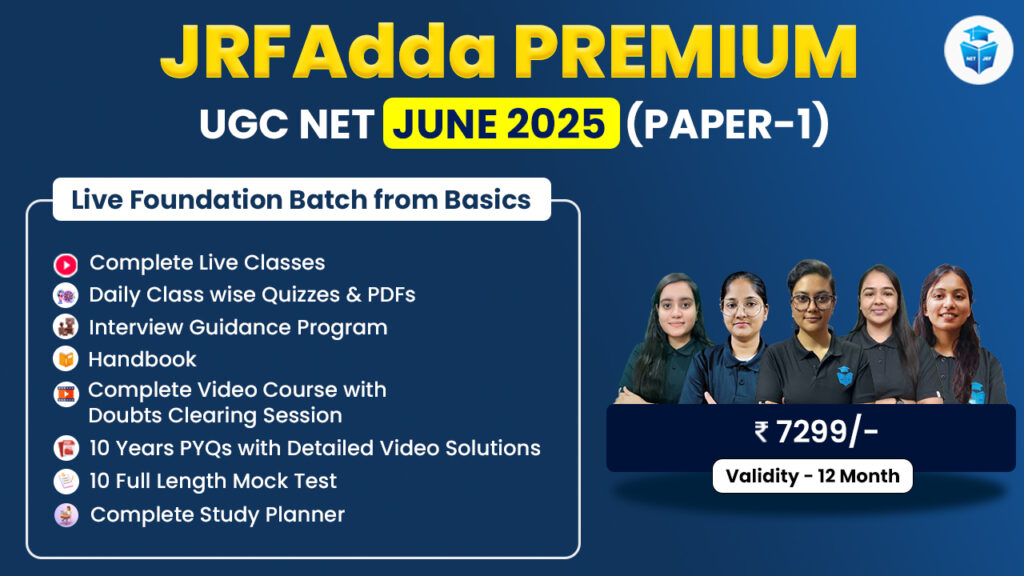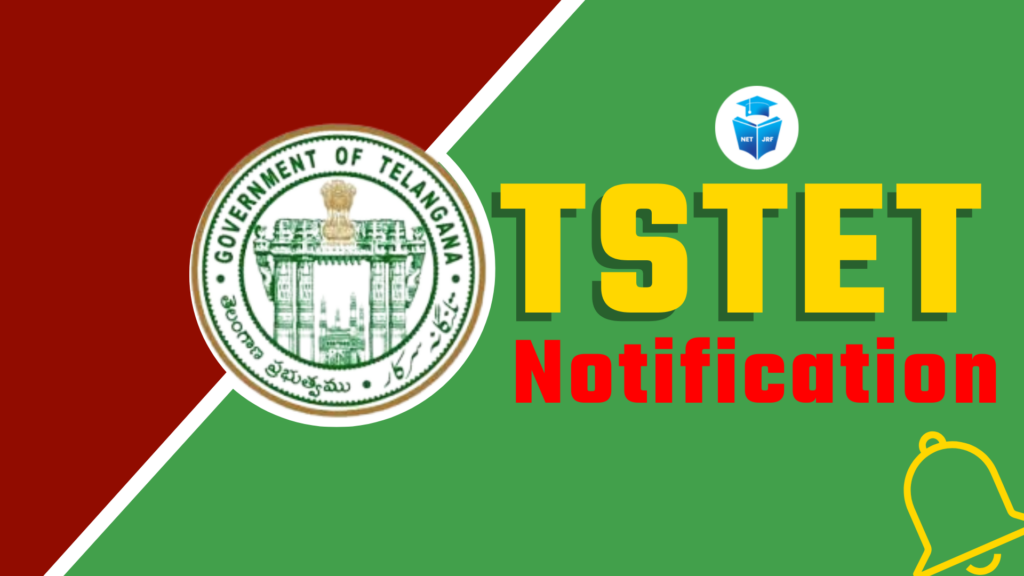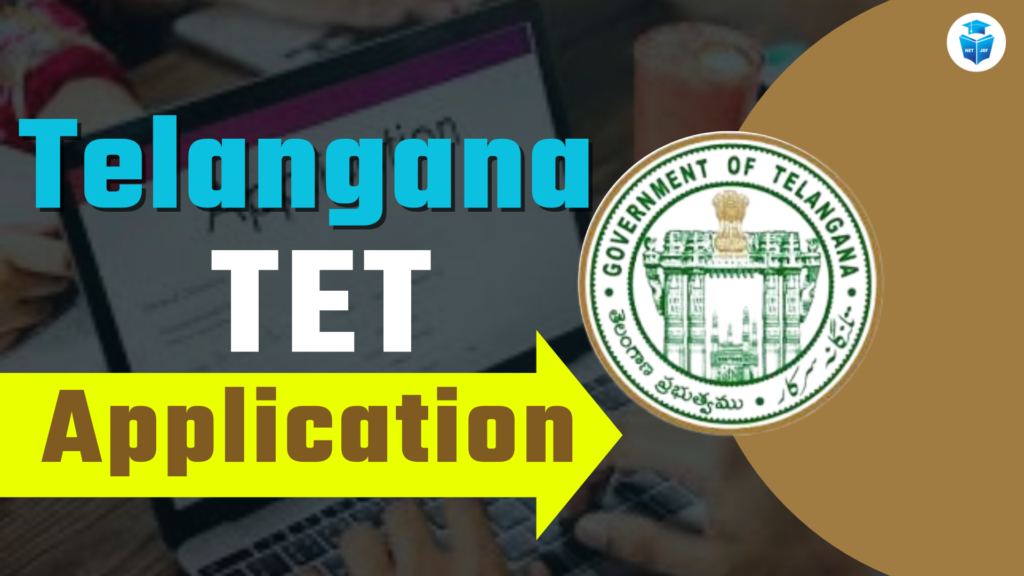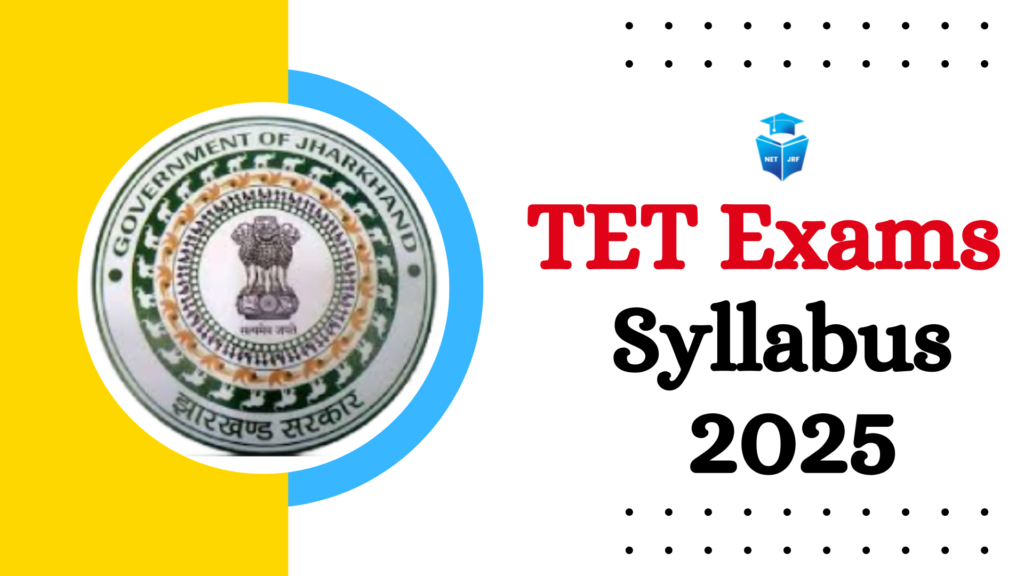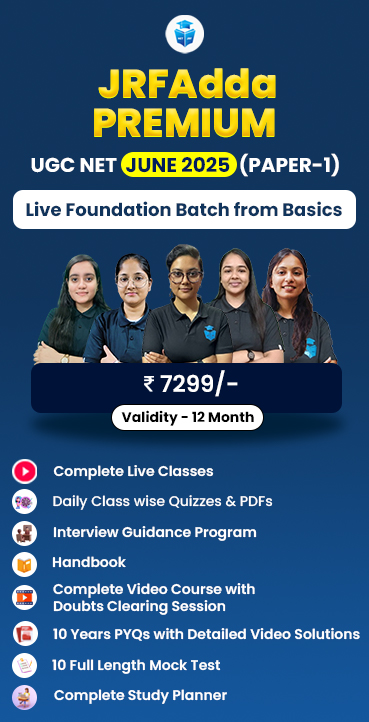UGC NET Law Eligibility 2025 defines the minimum requirements for applicants appearing in the June 2025 exam. Candidates need to achieve certain educational qualifications, subject specialization, and minimum marks to be eligible. The exam tests knowledge of different topics related to law, so it becomes important to have proper knowledge about the syllabus and eligibility standards. Candidates also need to follow the stipulated age limit to become eligible for JRF. This article gives an in-depth outline of eligibility requirements, such as qualifications, syllabus topics, and other relevant points to guide you through your preparation.
UGC NET Exam 2025 Overview
UGC NET Exam 2025 is a national exam taken by the National Testing Agency (NTA) to check the eligibility of students for the position of Assistant Professor and Junior Research Fellowship (JRF) at Indian colleges and universities. It is going to be conducted in June 2025, with online applications open a few months prior to the date of examination.
Exam Component | Details |
Exam Name | UGC NET 2025 |
Conducting Body | National Testing Agency (NTA) |
Exam Mode | Online (Computer-Based Test) |
Eligibility | Master’s degree with minimum marks requirement |
Subjects Covered | 85 subjects, including Law, Commerce, Education, etc. |
Exam Duration | 3 Hours (Single Session) |
Papers | Paper 1 (Teaching & Research Aptitude) + Paper 2 (Subject-Specific) |
Number of Questions | Paper 1: 50 Questions (100 Marks) |
Paper 2: 100 Questions (200 Marks) | |
Marking Scheme | +2 marks for each correct answer, No negative marking |
Age Limit for JRF | Maximum 30 years (Relaxation for reserved categories) |
Age Limit for Assistant Professor | No upper age limit |
Minimum Marks Requirement | General: 55% in Master’s |
OBC-NCL/SC/ST/PwD: 50% in Master’s | |
Application Mode | Online |
Application Fee (Expected) | General: ₹1150 |
OBC-NCL: ₹600 | |
SC/ST/PwD: ₹325 | |
Exam Date (Expected) | Jun-25 |
Admit Card Release | To be Announced Soon |
Result Declaration | To be Announced Soon |
UGC NET Law 2025 Eligibility Criteria
The UGC NET Law Eligibility Criteria 2025 outline the academic credentials, subject specialization, minimum marks, and age limit to be achieved by the candidates appearing for the exam in June 2025. Candidates need to fulfill the following main requirements to be eligible:
UGC NET Law Educational Qualification 2025
- The candidates should have a Master’s degree in Law (LL.M.) or an equivalent degree from a recognized institution.
- At least 55% marks (without rounding off) are necessary in the case of General/EWS category.
- Those from OBC-NCL/SC/ST/PwD/Third Gender categories need to achieve a minimum of 50% marks.
Specialization in UGC NET Law 2025
UGC NET Law tests the candidate’s understanding and knowledge of legal principles, concepts, and how they apply. Candidates who possess a strong grounding in these aspects and an inclination towards teaching or research are well-suited to this specialization. The exam assesses proficiency in fields like:
- Constitutional Law
- Jurisprudence
- Criminal Law
- International Law
- Environmental Law
- Human Rights Law
- Corporate Law
- Intellectual Property Rights (IPR)
Minimum Marks Required for UGC NET Law 2025
The examination is comprised of two papers:
- Paper 1 (General Teaching & Research Aptitude)
- Paper 2 (Law Subject)
- Candidates have to secure 40% (General) and 35% (OBC-NCL/SC/ST/PwD/Third Gender) in the aggregate of both papers to qualify.
Age Limit 2025 for UGC NET JRF in Law
- Junior Research Fellowship (JRF): Age limit is maximum 30 years (as of June 1, 2025).
- Relaxation of age limit up to 5 years is available for OBC-NCL, SC, ST, PwD, and women candidates.
- There is no maximum age for candidates applying for eligibility as Assistant Professor.
Nationality
- The UGC NET Law is available only to the citizens of India.
UGC NET Law Attempts 2025
- Number of Attempts for Assistant Professor eligibility is unlimited. But there is an upper age limit in the case of Junior Research Fellowship (JRF).
Minimum Marks for UGC NET Law 2025
In order to become eligible for UGC NET Law exam, one needs to meet the below-specified minimum marks requirements in one’s Master’s degree (LLM) or equivalent:
Category | Minimum Percentage Required in Master’s Degree |
General/Unreserved (UR) | 55% (or equivalent grade) |
OBC-NCL / EWS | 50% (or equivalent grade) |
SC / ST / PwD / Third Gender | 50% (or equivalent grade) |
Note: Minimum marks requirement is applicable for both Assistant Professor and Junior Research Fellowship (JRF) qualification.
UGC NET Law Syllabus Topics 2025
The syllabus of UGC NET Law is split into Paper 1 (General Teaching and Research Aptitude) and Paper 2 (Law-specific topics). Below is an overview of the major topics:
Paper 1: General Paper (Common for All Subjects)
- Teaching Aptitude
- Research Aptitude
- Reading Comprehension
- Communication
- Logical Reasoning
- Data Interpretation
- Information and Communication Technology (ICT)
- People and Environment
- Higher Education System
Paper 2: Law-Specific Topics
- Jurisprudence: Nature and sources of law, legal ideas, and hypotheses.
- Constitutional Law: Indian Constitution, fundamental rights, directive principles, and judicial review.
- Criminal Law: IPC, CrPC, and penal theories.
- International Law: Sources, treaties, and international organisations.
- Environmental Law: Policies, principles, and milestone judgments.
- Human Rights Law: Universal Declaration of Human Rights, Indian vantage point.
- Corporate Law: Companies Act, corporate governance, and insolvency.
- Intellectual Property Rights (IPR): Patents, trademarks, copyrights, and their laws.
Why Pursue UGC NET Law?
Attempting UGC NET Law in 2025 provides law graduates and professionals with numerous career prospects. It is a prestigious qualification that can propel a person to higher levels of academics, research, and the legal profession. Here’s how you should give a shot at UGC NET Law:
Become an Assistant Professor
Passing UGC NET Law renders you qualified for the posts of Assistant Professor in universities and colleges throughout India. It guarantees a secured academic life with satisfactory remuneration.
Junior Research Fellowship (JRF)
Aspirants clearing UGC NET with JRF are able to carry out Ph.D. in Law under the patronage of the government. It further provides avenues for research-based profession in legal research.
Career Growth in Legal Research
Most think tanks, research institutions, and policy think tanks look for legal researchers. UGC NET Law certification increases your reputation and facilitates research-based job acquisition.
Government Job Preference
Some government organizations, PSUs, and law commissions prefer UGC NET Law candidates for legal advisory work, legislative drafting, and policy-making.
Enhance Your Legal Academic Qualifications
Either you are a practicing advocate or legal professional, securing UGC NET Law enhances academic credentials and advances your profile in the law and judiciary field.
Publishing and Contributing Opportunities for Legal Studies
Through UGC NET Law, you can publish research papers on law, contribute to journals, and engage in national as well as international legal forums.
Conclusion
UGC NET Law 2025 is an opportunity for the candidates who are willing to get appointed as Junior Research Fellows (JRF) or Assistant Professors in the domain of law. Being eligible, familiar with the syllabus, and preparing tactically will ensure a better chance of success in this competitive exam. With openings in academics, legal research, and government organizations, clearing UGC NET Law can create various career opportunities. If you are interested in law and want to contribute to legal education and research, this exam is the ideal stepping stone for your future. Begin your UGC NET Law 2025 preparation today and move one step closer to your career aspirations!
UGC NET Law Eligibility 2025 FAQs
candidates need to be Master’s (LL.M.) with at least 55% marks (EWS/General) or 50% marks (OBC-NCL/SC/ST/PwD/Third Gender) from any recognized university.
Yes, students can apply while pursuing final year, only if they produce proof of achieving the Master degree prior to declaring the results.
There is no attempt limit for eligibility for Assistant Professor, but JRF is age-bound (up to 30 years).
Main subjects are Jurisprudence, Constitutional Law, Criminal Law, International Law, Environmental Law, Human Rights, Corporate Law, and Intellectual Property Rights (IPR).
The candidates need to obtain at least 40% (General) and 35% (OBC-NCL/SC/ST/PwD) marks in Paper 1 & Paper 2 together.

